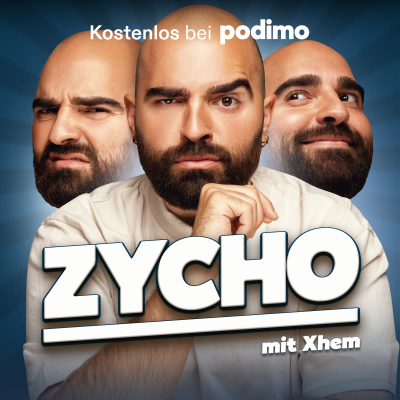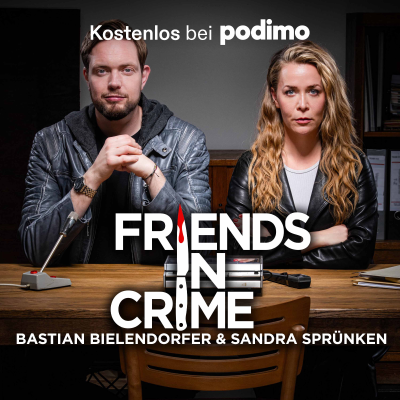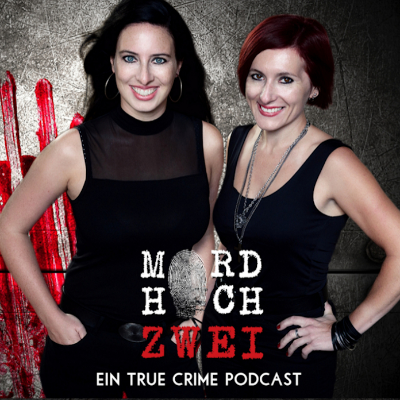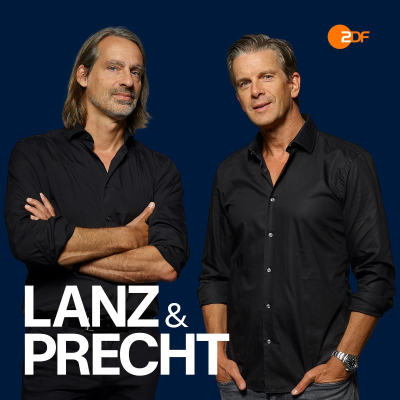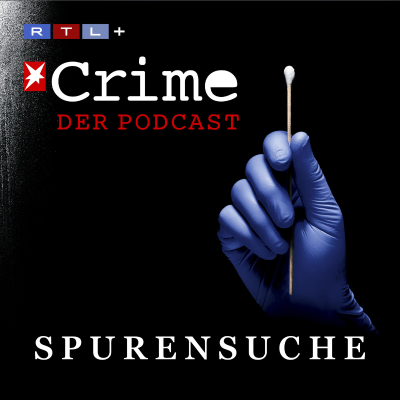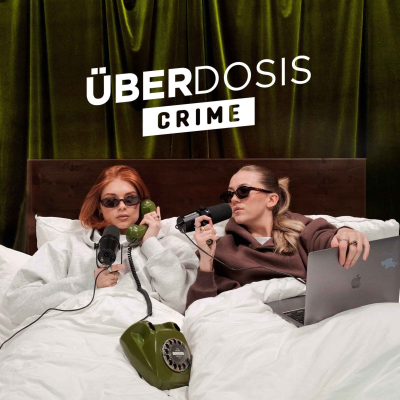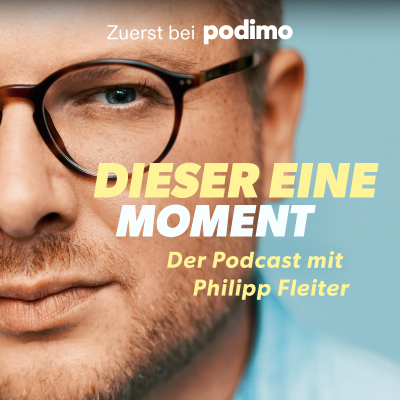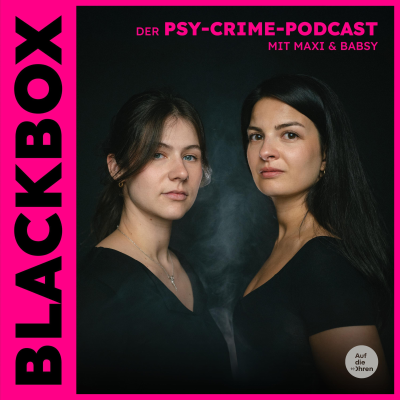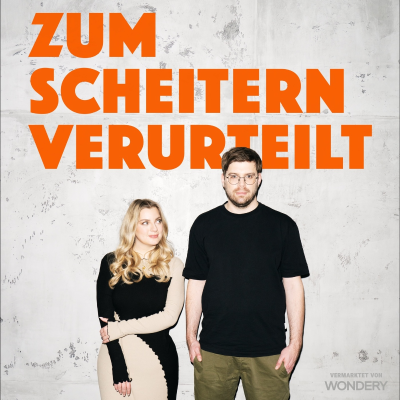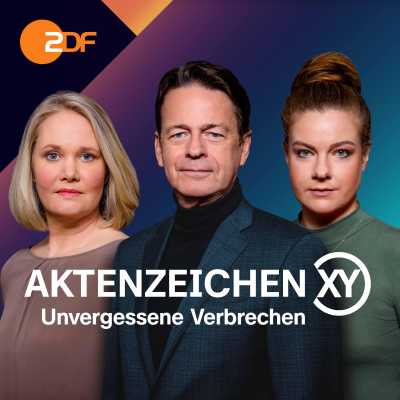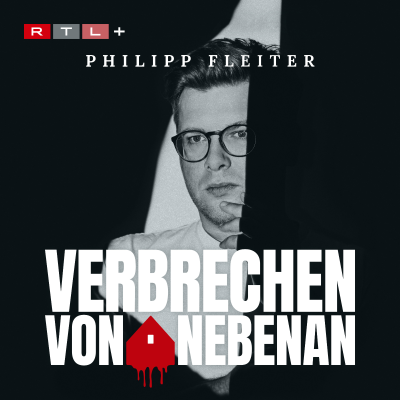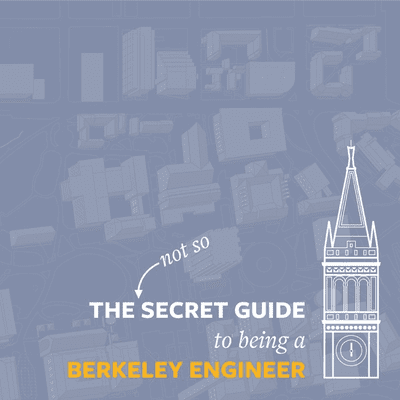
The (Not So) Secret Guide to Being a Berkeley Engineer
Podcast von Engineering Student Services
Nimm diesen Podcast mit
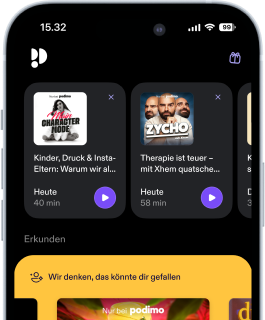
Mehr als 1 Million Hörer*innen
Du wirst Podimo lieben und damit bist du nicht allein
Mit 4,7 Sternen im App Store bewertet
Alle Folgen
9 FolgenEpisode 422 - Majors: Changing, double and simultaneous [http://welcomengineer.berkeley.edu/wp-content/uploads/2020/09/Episode-422-Majors-500x500.png]Today on The (Not So) Secret Guide to Being a Berkeley Engineer we are going to learn about the different types of major options: joint major, double major, and simultaneous degree. What is the difference between each of these and how you can pursue changing your major to pursue them. Joining us Sharon Mueller, director of advising and policy in Engineering Student Services (ESS) and Joey Wong, ESS adviser. Important links: * Berkeley Engineering majors and minors [https://engineering.berkeley.edu/academics/majors-and-minors/] * Joint major [https://engineering.berkeley.edu/academics/majors-and-minors/major-options/#joint] * Double major [https://engineering.berkeley.edu/academics/majors-and-minors/major-options/#double] * Simultaneous degree [https://engineering.berkeley.edu/academics/majors-and-minors/major-options/#simultaneous] EPISODE TRANSCRIPT Laura Vogt: Hello, and thank you for tuning into this week’s Not So Secret Guide to Being a Berkeley Engineer. My name is Laura Vogt. I’m the Associate Director of Marketing and Communications in the College of Engineering. Today, we’re going to learn about the different type of major options and what they mean. So joining us or some of my favorite folks in the student services, Sharon Mueller and Joey Wong. Welcome to the podcast. Joey Wong: Thank you. Sharon Mueller: Thank you. Thanks for having us. Laura Vogt: And Sharon, you’ve been with us a couple of times this summer. So welcome back again. Please remind our listeners about your role in ESS. Sharon Mueller: I am Sharon Mueller, the Director of Advising and Policy in ESS. Laura Vogt: And thank you again for joining me today. Joey, your turn. Please tell us about yourself and your role in ESS. Joey Wong: Yeah. Hi everyone. My name is Joey Wong. I’m one of the advisors here at ESS. I mainly advise bioengineering students, but also engineering undeclared students. So students who are exploring majors in different majors and trying to figure out what major is right for them. Laura Vogt: Excellent. And thank you so much for joining us. So most of our students have been admitted in specific measures. Like Joey just mentioned, he also does a small subset of our undeclared. And I know we’re already hearing about students who want to take on more, whether it be a second major or a minor, or on the other hand, change majors completely. So today I wanted to learn more about what the options are for each of these. And so let’s start with changing majors. You can change majors within the College of Engineering, or to a major outside of the college. So Sharon, can you tell us what a student needs to think about if they’re pursuing either one of those? Sharon Mueller: Yeah. So to change major within the College of Engineering, students, for whichever major the student is choosing, there might be different requirements. So there’s always a minimum GPA requirement, depending on which major the student wants to go into. And that can range anywhere from 2.5 to 3.3, depending on the major. And students have to complete at least one semester at Berkeley before they’re eligible to change majors. For some majors, it’s two semesters. So the criteria really change depending upon which major the student wants to change to, which is why we advise students to talk to their ESS advisor about it. Sharon Mueller: I know that it can be challenging sometimes to make sure that students are continuing to meet requirements for their current major, the one that they were admitted to. And it’s crucial, however, that students do stay on track for their current major, because it may not be possible to change majors depending on the GPA and criteria. Sometimes those are challenging for students to meet. So we really want students to finish at least one semester before they start thinking about this, because then they’ll just have more exposure to the classes at Berkeley. And then will probably have a better understanding of which major they might want to change to. So that’s changing within the College of Engineering. Sharon Mueller: As you mentioned, students could switch out of the College of Engineering and change to a major in a different college on campus. And in that case, we advise students at some point they could even start this during their first semester to go and meet with an advisor in that college because they also have minimum requirements. So students will want to make sure that they’re clear on those. A lot of those are also posted on websites. So there’s a lot of really good information on the other colleges’ websites about minimum requirements for changing into their college and into a major in their college. Laura Vogt: And Joey, part of the changing of major, so a lot of times, the students are taking similar courses their first semester, no matter what their major is. So that’s not something they should have to worry quite as much about in that first semester, right? Joey Wong: Yeah. I mean the first semester, if you’re talking about majors within the College of Engineering, the lower division type courses aren’t are going to be very, very common across the board in terms of math, chemistry, physics. Those are pretty similar throughout all the engineering majors. Laura Vogt: So asking them to wait a first semester isn’t necessarily going to put someone behind if they really wanted to change? Joey Wong: No, it shouldn’t. Our change of major criterias are put in place so that it set students up to make that change before the end of their second year. So the idea is that they’re making that change if they do pursue that, and they will have enough time and plan to finish their degree to the major that they’re changing to on time. Sharon Mueller: Yeah. So that’s actually an imposed deadline for students who want to switch majors within the College of Engineering. First of all, transfer students, I should clarify, are not able to change majors within the College of Engineering. But for students who are entered as freshmen, they have until the end of their sophomore year, end of their second year, to make that change. And really, that’s because you just can’t wait any longer because that’s when you see the greatest divergence in courses. So students really have to make the decision, I would say, pretty much in the freshman year or in early sophomore year, just to make sure that they’re setting themselves up also for the new major. And that’s where their ESS advisor could be really helpful as well in planning out both scenarios. Joey Wong: Yeah. I think majority of the students who come in and do think about changing majors do end up doing it after their first year. So some somewhere between their first and second year is when they’ll be able to apply and petition to make that change of major happen. Laura Vogt: Joey, do you want to talk about how the criteria are different for students who came in as undeclared in engineering? Joey Wong: Yeah, so the declaration process for engineering undeclared students is a bit different, because it’s technically not really a change of major. Technically, it is kind of a change of major, but theoretically, it’s not. You’re more of declaring your major because you’re coming in as engineering undeclared. So the criterias are going to be a little bit different than the change of major official criterias. And the best thing to do is if you’re having thoughts about changing major, exploring other majors, is to have a candid conversation with your ESS advisor as early as possible. Because usually with a change of major and change of college and any changes like that, the earlier you get that process in the back of your mind or thinking about it or talking about it, the usually easier it becomes. Because you don’t want to be in junior or senior year and figuring out, “Oh, no, this is not the right major for me.” Laura Vogt: So I feel like you’re telling me our students should talk to their advisors? Sharon Mueller: Yes. Joey Wong: Yes. That would be a good advice. Laura Vogt: And so Sharon, can you tell me a little bit about a joint major in how students can pursue getting one of those? Sharon Mueller: Yeah. So in the College of Engineering, we have six joint majors. And those are BioE MSE. So that’s one joint. EECS MSE, EECS Nuclear Engineering, Material Science & Engineering and Nuclear Engineering, Material Science & Engineering and Mechanical Engineering, and Nuclear Engineering and Mechanical Engineering. And then we also have two joint majors with the College of Chemistry, with Chemical Engineering, and those are actually managed by the College of Chemistry. So those students are in the College of Chemistry. Sharon Mueller: So the joint major is not all of the requirements of both majors. It’s a subset of the requirements of both majors. So it’s many of the core courses of each major, but it’s specifically addressing the intersection between those two disciplines. So for instance, a student who might be interested in EECS MSE joint major, it’s a very prescribed curriculum, which is very different than the EECS single major, which at the upper division is very open-ended. So the joint majors are pretty prescribed. They’re designed for students to finish in four years. They are really designed to capture where those two disciplines intersect with each other. And so they’re kind of specified and really only certain students might be interested in pursuing those. There’s more information about those on our website, in the undergraduate guide, under majors and minors, under academics, where students can read more about what those joint majors are. Sharon Mueller: So transfer students actually are allowed to pursue a joint major once they arrive at Berkeley, because no one is able to apply either from high school or from another higher education institution directly into a joint major. Because students have to be really thoughtful about whether or not that’s the right path for them. So transfer students have to decide within their first year if that’s something they want to pursue. Frankly, probably earlier, just to make sure that they’re going to still graduate in their five semesters. And for freshmen, it’s the same deadline as the change of major, because it is seen as a change of major. So the deadline is the end of sophomore year. So I would advise students who might be interested in a joint major to really read what that’s all about and to look at the curriculum, because they are all pretty prescribed sets of curriculum. But they do fulfill the need for students who want to study in the intersection of those two disciplines. Laura Vogt: Excellent. Joey Wong: So a lot of times, there’s definitely some misunderstanding with the joint majors with students. They’re thinking, “Oh, it’s a joint major. Why not do this? It sounds like it’s two.” But it’s really not. So for example, like Sharon mentioned, the EEC MSE joint major is very, very narrow in focus in terms of the intersection between EECS and MSE. So basically it’s not really CS at all. It’s more focused on upper division EE that have intersections with the material science engineering part of it. So if you’re doing EECS and you enjoy the CS part of it more, but you also enjoy MSE, it doesn’t make sense to do this joint major if you’re interested in the CS part of it. Laura Vogt: So that can actually bring us into, what is the difference between doing a joint major and a double major? Joey Wong: Yeah, so a double major is, is you’re completing both majors as prescribed for both curriculums, whereas the joint major has the courses parsed down in terms of the upper division to the intersection of those two majors for the double major. It is likely going to be a little bit more coursework at the upper division level. But it may also allow you a bit more flexibility in terms of choosing what focus or what interests you might have in the upper division level of those particular majors. Laura Vogt: And Sharon, can you please tell us a little bit more about what a simultaneous degree is? Sharon Mueller: Sure. So a simultaneous degree is when a student is pursuing a bachelor’s degree in say the College of Engineering and then another major in a different college. So any time a student has two majors that are in two different colleges, that’s called a simultaneous degree, and those are similar to double majors. Like Joey was saying, you’re following the curriculum for each of those majors. There’s not quite as much overlap as allowed when students do a simultaneous degree and they have to keep in mind also that not only are they fulfilling the requirements of both majors, but they also have to fulfill the college requirements for both colleges. And there may be some flexibility with that actually, we have a new policy about that. Sharon Mueller: So I would suggest students talk to their ESS advisor, but let’s say a student is pursuing a simultaneous degree in the College of Natural Resources and the College of Engineering, that student would need to make sure that they’re fulfilling the breadth requirements that both colleges require. And there’s often a ton of overlap there. And so we can really work with students to help them design their program plans so that they’re taking advantage of all the overlap that’s allowed with the college requirements. But students also with a simultaneous degree are usually granted an additional semester if they need it. Sharon Mueller: So that’s one advantage of the double major or simultaneous degree. We can usually grant students an additional semester. I should point out that while transfer students are not eligible for the double major, meaning they’re not eligible to have two majors in the College of Engineering, they are eligible to apply for a simultaneous degree. So once they’re admitted to engineering, they are eligible to apply to do a major in another college as well. Laura Vogt: Thank you. And Joey, can you tell us more about what is a minor and that can affect a student’s course of study? Joey Wong: Sure. A minor is usually a department will a set number of courses required for their minor. Usually somewhere between four to seven, I would say, is average number of courses for a minor and minor is really, really something that’s kind of extra supplemental that students would want to take on if they find interest in that topic or subject. What we often see is students come in freshmen first semester and they say, “Oh, I want to minor in this without having taken a single course in that subject and topic.” And that’s ideally not what we want to see. Joey Wong: Usually, we want students develop their interests in the minor organically, whether it’s starting off in your first year or second year taking some of these lower division courses in this minor department and then growing that interest and then declaring the minor that makes, that makes the process a little bit more, I guess, rewarding, I think, than coming in and saying, “I want to minor in this.” So the general advice is don’t minor in something to minor in something you first have to find that interest, whether it’s art practice, whether it’s economics, whether it’s whatever it may be, take a class or two in that subject or topic. And if you feel like you’re really interested in that, and you feel like that will supplement your course of study or major well, then you should pursue and take more courses in that. Sharon Mueller: Yeah. And some minors have admission requirements. So they might even require students to do one or two lower division courses. And they might even require a GPA for students to qualify for the minor. And also I should point out that we don’t give extra time for a minor. So students just need to fit it in to the curriculum, the plan that they’re pursuing. And some departments also have a deadline by which students have to declare the minor, but it’s late. It’s like the semester before they graduate. So they have a lot of time to decide. And sometimes, students find that the minor might be too limiting. Maybe they like political science, but maybe they don’t want to be limited to the courses that they have to take for the minor. And they might just want to take more political science courses. And that’s fine too. So for some students, we always say, “If the minor fits in really well with your interests, then go for it. But if not, don’t, like Joey was saying, don’t get one just for the sake of having one.” Joey Wong: And there are also multiple minor type programs out there. I believe summer session has a summer minor that they offer for different departments and majors. And then you can earn a minor within one or two summers of coursework, but it really depends on if you’re interested in those topics and subjects. And some minors also have teaching credentials like the Cal Teach Minor that’s kind of associated with it and linked with it. So we have an assortment of areas that you could minor in. So it’s best first to explore and see what your interests might be. And then go from there. Laura Vogt: Is there a place online for Berkeley that talks about all the minors that are available? Sharon Mueller: Yeah. The Berkeley Academic Guide, actually. Students can go there and you can narrow the search by minor. So if you just go to Berkeley Academic Guide and then click on the undergraduate button and degree programs, you can actually break those down into minors. I see, Joey, there’s even a breakdown for summer minors only. So if you just click on that, you can see all the minors across campus that are offered, if you click on it, all the details about that minor. Laura Vogt: They might also be interested in doing something like we’ve got a couple of certificate programs, like the Jacobs Design. Sharon Mueller: That’s right. We do. Laura Vogt: There’s one for an entrepreneurship, I believe. Sharon Mueller: Yes. And students often will pursue those certificates too. So yeah, there are actually a lot of different options for students who want to supplement their undergraduate degree. And they might find, depending on their engineering major, that adding something in like this might just be a little too much and they might just want to dabble and take some courses of interest in different areas. But if they want a concentrated area of study, those are good options, minors and certificates. Laura Vogt: So like we said earlier, it’s really important to start conversations with your engineering student services advisor if you want to discuss either changing your major, or getting a joint major, or pursuing an additional one. I know this summer, we’re still trying to get students just enrolled in classes and figure out what’s happening in a semester. So when do you think is the best time for them to start reaching out for that appointment about their major specifically? Sharon Mueller: I would say, and Joey, you can jump in here too, but I would say give yourself a semester. If you’re thinking about changing into a major that has specific minimum course requirements, for instance, EECS has certain courses you have to take in order to qualify. You’ll actually want to have that conversation with your advisor before you enroll in your Spring classes. So probably in October. The other majors, you’re usually going to be taking the similar courses, as Joey mentioned, for preparing for those majors. So if you’re interested in a major outside of EECS, you could even wait until the Spring semester, but you also want to make sure that you’re staying on track with your current major, just in case. Sometimes students change their minds. Sometimes they get in that first course for that major and say, “Oh, this wasn’t really what I thought it was. I think I’m going to stay where I am.” So it’s just important to be flexible, but also hash out a plan with their ESS advisor. Laura Vogt: And is there anything I didn’t ask about the majors, and changing, and finding what really is going to be your niche for while you’re here at Berkeley? Sharon Mueller: I will say there’s a class in the Fall. And almost all of the engineering undeclared students take it. It’s called Engineering 92. And Joey, there is no restriction on enrollment for that class, right? Joey Wong: No, anyone who is interested should be able to take it. It’s a one unit seminar, Engineering 92, offered Mondays four to five in the afternoon. So if your schedule allows and you’re considering exploring, and thinking about other majors, then Engineering 92 is a good seminar to check out. Sharon Mueller: Yeah. And as I understand it’s about one hour a week. And it’s a different faculty who come in and talk about their areas of discipline and people from industry as well talk about what they’re doing with their degrees. So for students who are feeling like they know they want engineering, but they’re not quite sure if they’re in the right major, they are welcomed to take that class. It’s a good class for discovery and it might open some other opportunities up for them. Laura Vogt: Well, thank you both so much for joining me today. Sharon Mueller: You’re welcome. My pleasure. Laura Vogt: Thank you everyone for tuning in to this, our fourth season of the Not So Secret Guide to Being a Berkeley Engineer. I look forward to bringing us back for a fifth season next year, but until then, have an awesome school year. Bye.
Episode 421 - Berkeley Certificate in Design Innovation [http://welcomengineer.berkeley.edu/wp-content/uploads/2020/09/Episode-421-BCDI-500x500.png]The (Not So) Secret Guide to Being a Berkeley Engineer is excited to welcome back Tyshon Rogers, Student Services Adviser for Jacobs Institute for Design Innovation [https://jacobsinstitute.berkeley.edu/], to introduce us to the Berkeley Certificate for Design Innovation [https://bcdi.berkeley.edu/] (BCDI). You’ll have a chance to learn what design innovation is, who can pursue the certificate, what the requirements are, and how you can fit the certificate into your already full schedule. EPISODE TRANSCRIPT Laura Vogt: Hello, I’m Laura Vogt, the Associate Director of Marketing Communications in the College of Engineering. This week on the Not So Secret Guide to Being a Berkeley Engineer, I’m excited to welcome back Tyshon Rogers to introduce us to the Berkeley Certificate for Design Innovation, or BCDI. Hi, Tyshon. Thank you so much for being here today. Tyshon Rogers: Oh, hi. How are you? Glad to be here. Laura Vogt: It’s been a couple of years since you were here to tell us about the BCDI, and I thought it was a good time to invite you back and tell our new students about the programming. So let’s start with learning more about you. Tell us more about yourself and your role at UC Berkeley. Tyshon Rogers: Yes. So my role at Berkeley is I’m a Student Services Advisor and I work at the Jacobs Institute for Design Innovation. I am also the Student Services Advisor for the Berkeley Certificate for Design Innovation. In both programs, we try to cater towards students who have interest in design education, and we can allow for students to take courses, to learn skills, do a number of different trainings, but my primary job at Jacobs is really scheduling enrollment. And then for the Berkeley Certificate in Design Innovation, I administer that program. I work with students to help them along in fulfilling the course requirements. Yeah, that’s what I do presently. I had a stint in the History Department before I came over to Jacobs and the Berkeley Certificate in Design Innovation, and my background is generally in Humanities. Laura Vogt: Excellent. I know so much about design is not necessarily engineering focused. It’s a really interdisciplinary program in general, so it’s great that you’re coming with a different background. Tyshon Rogers: Yeah, absolutely. Yeah. Laura Vogt: And thank you so much again for being here today. I really appreciate your time. So let’s start with the basics of what is the Berkeley Certificate for Design Innovation and how does it relate to the Jacobs Institute for Design Innovation? Tyshon Rogers: Okay. So, the basics of the program essentially emerged out of mechanical engineering instructors thinking about ways to innovate and change the pedagogy of engineering in certain ways, to incorporate more human-centered design and design methodology into the curriculum. Out of this came a broader campus-wide situation where you had the Deans of four colleges invest into a program that was meant to introduce students across the campus to multidisciplinary design. And so the program was launched in 2017 and it was launched by the Deans of the four schools that are involved. That would be College of Engineering, College of Environmental Design, School of Business Haas, and the Letters, Science, Arts, and Humanities Division. Tyshon Rogers: So the initial courses emerged from those four colleges, and those courses were chosen based on their engagement with a certain type of pedagogy that taught human-centered design methods and design methodology. So that was the primary focus. That was how it emerged. And hopefully that influence of teaching has spread into other courses around the campus and you’ll see a number of those methods taught in classes overtly now. And engineers have a lot more communication when it comes to that throughout their other classes. So that’s how it initially launched. The program consists of me as the Student Services Advisor, and we also have the Academic Board that has a professor from each of those supporting colleges. So, Eric Paulos from EECS represents COE. Sara Beckman from Haas. Kristen Whissel represents Letters and Science, Arts and Humanities Division. She’s a film professor. And Simon Schleicher represents CED. And he’s an architecture professor. Tyshon Rogers: So with that we review courses for addition, and we set the agenda and any new developments that we are wrestling with for the program to extend it out and serve the general undergraduate community. Laura Vogt: So when you talk about design innovation, what does that mean? Tyshon Rogers: So when we speak of design innovation, we see design as an intersection between two major components, which will be naturally design methods and then technological innovation. And so this intersection allows for us to link these new technologies that you learn through a number of different courses here, whether that’s introductory hands on courses or theoretical engineering courses. It allows us to link those new technologies with the human experience in a way that centers on people. And so that’s the whole purpose of human-centered design, and it allows for people to be at the center of that creation process and allows engineers essentially and students in general to be better designers and more effective designers. And I would say just in adding onto that, the way this is going to work is that the courses that we do offer to the circuit, most of them are pretty hands on in a lot of ways. And so in that way, we engage with Jacobs physically as a resource, whether that’s through their active learning classrooms that are designed with design teaching in mind. Tyshon Rogers: So you’ll have whiteboards, you’ll have a bunch of materials to be able to rapidly prototype. You’ll have movable tables and stuff like that and power tables. So you can break off into groups and come back together. And the classroom ultimately operates like a design team, essentially allows for design teams to operate like they would in the real world. So there’s a lot of intersection between Jacobs and the certificate program and we can go into that a little bit more. Laura Vogt: And so why is the BCDI something that students should want to pursue? Why are they seeking this out? Tyshon Rogers: There’s a couple of ways why students are seeking it out. You’ll have students who have already explored design in one form or fashion before they’ve arrived at Berkeley. You have students who are at Berkeley who happened to take a course and then their interest was peaked and they decided to explore a little bit further. Then you have students who want to fully engage in design work once they leave Berkeley. And I would say the program is open for and can serve all those student needs. Ultimately students in general, I think it’s good to have students from multidisciplinary backgrounds involved in design, because what’s known as design touches all of our lives. And whether your political economy or you’re EECS, we’re going to need perspectives of people from all types of disciplines to design a future that works for the populace. Tyshon Rogers: And so students can engage in a number of different ways. It can be pretty streamlined and straightforward, like a student may want to be a user experience designer. And then they can take a suite of courses that offers them an experience that allows for them to do a lot of physical design work and present a portfolio that shows essentially professional work and speaks directly to working in that industry, to students who want to explore a number of different design methodologies and subject matters, whether this is computer design or physical product design, it allows for the students who just want to broaden your horizons when it comes to design. And so there’s a lot of intersections in different entry points for students in general, but ultimately students should want to pursue it to gain a sense of purpose in what they do pursue and when they do put their skills to work on. Laura Vogt: So does the BCDI have separate tracks that you could choose from as you’re pursuing it, or is it you have to hit just different sections and when you choosing your courses? Tyshon Rogers: Yeah, that’s a good question. So the academic committee, we actually wrestled with this for a minute and we didn’t want to silo off different tracks for students and have been choose and feel the need to choose. But students are naturally choosing certain tracks. They work themselves out in a certain way. So we allow for it to be open. We don’t list them or break them off into different tracks, but naturally students will, if they are a little bit more hyper focused on what they want to pursue, they will find a number of different courses that would allow for you to pursue that. And then if there’s issues with course availability or something like that, then they work with me to figure out other options and stuff like that along the way. But usually the suite of courses and then our flexibility allows for students to pursue what they would like to pursue specifically. Laura Vogt: And I know not all the courses are offered solely by the College of Engineering, but are the courses for the BCDI mostly done in Jacob’s Hall? Tyshon Rogers: I would say maybe 50% to 60% are offered in Jacob’s Hall. So definitely a good number of courses, whether it’s the lecture and the labs, we also have courses that offer just the labs in the building, because there’ll be doing a lot more physical interaction in the labs. So in some form or fashion, if you’re taking one of the courses that are a part of the program, you’re probably in the building some form of fashion 75% of the time as far as the course are concerned. There are courses that do operate outside the building in different spaces. We do offer as part of the certificate some theater courses and some courses in CDD that would naturally be housed in their buildings. Laura Vogt: Would you say that most of the classes are hands on experiences where you’re working in a group and starting with an idea and creating something? Tyshon Rogers: Oh yes, absolutely. So if you’re a student who, let’s say is in engineering, and you’re looking to have a hands on experience versus working through some of the theoretical teachings, et cetera, and some of the basics like the math that you have to take, the CS courses you may have to take, et cetera. We have a number of different hands on courses that you can engage with. At Jacobs they developed design innovation courses, which are officially a part of the College of Engineering, but they are multidisciplinary courses that are open to students from across the campus. And so those courses are designed with hands on teamwork activities in mind, with also final projects that you would you present at the end. And at Jacobs they also have a design showcase at the end where you will be presenting your designs ultimately. But you do work through that design framework in these classes and the majority of classes. Laura Vogt: Is there any requirements as to how far into your studies you need to be before you can start pursuing the certificate? Tyshon Rogers: So, no. And ideally the certificate is set up for a student who doesn’t know about design and they come to campus as a freshman and they become interested in through, meet at CAli-Palooza or they hear about a decal at the decal showcase and stuff like that. So it’s meant as a way for a freshman to take our first grouping of courses, which we like design foundations to be introduced to design through whatever discipline they would like to be introduced to it from. And once they sit that course, they have a idea of what design broadly means and the interactions and activities involved. And then they can choose from there. And so ideally will work maybe one class per year, as you learn what you want to do and pursue next. It’s not that heavy of a load to complete in conjunction with your normal academic track. Laura Vogt: You’re almost answering the next question of how many classes are you having to take to do this and how do you fit it into your schedule? Tyshon Rogers: Yeah, so sorry about that. Laura Vogt: No, that’s good, it’s a good transition. Tyshon Rogers: But yeah, so ultimately there are four courses you need to take. And we have three categories of courses. So the design foundations are our smallest group of courses, but we have a number of courses in each design area. And from each school that sponsors the program. So you can learn about design from College of Environmental design perspective, or you can learn about it from a College of Engineering perspective, from a Haas perspective or from Arts and Humanities perspective. And that means you can take Intro to Visual Thinking under R8, or you can take something like Design Methodology, which is a design innovation course that is essentially in college engineering courses. So you can choose from there and then decide where you want to go as you pursue further courses. Tyshon Rogers: We also have a group in a course called Design Skills in that group of courses. The courses are more focused on gaining tangible skills sets. So you’ll have courses like 3D utilization. You’ll have courses in prototyping and fabrication. We have a course, Creative Programming and Electronics. So it runs the gamut of technical courses that are, and a lot of these courses are open to students from all types of backgrounds in design, and the basic course specifically are geared towards students from any academic backgrounds who participate. So you can learn basic physical product design through a course like Prototyping and Fabrication and Design Innovation 22. Even if you have no technical background, you can see how the sausage is made in some ways, or at least know what you would need from your mechanical engineering, electrical engineering team as to how to put together a physical product that let’s say is controlled through Bluetooth technology. Tyshon Rogers: And then we have a final level of courses called Advanced Design, which take the skillsets that you’ve learned and the methodological approaches that you’ve learned and combine it to take you to a full iterative design process and solve really difficult problems with products. So that’s ideally how it work. And then hopefully if you’re pursuing design, then you have courses that line up specifically for what area of design you’re pursuing. Laura Vogt: Oh, I really like that, that you’ve got so many choices and that you’re not bottle necked into one specific thing. Tyshon Rogers: Yeah, absolutely. Yeah. Laura Vogt: And so can you share with us one or two of your favorite experiences of working with this program? Tyshon Rogers: Yeah, so I would say, I think I’ve touched on this. So the best part about it would be, let’s say my first tabling at CAli-Palooza, where you meet a ton of freshmen will come in and we’re at the table and we have a bunch of devices and dohickies going on at our table and students are stopping by and saying, “Oh, what’s that?” And you’re like, “Oh, this was 3D printed at Jacobs, dadada, and you could take this class.” And so you introduce students who just came to Berkeley and are just interested in what they see and how could they be a part of it. And then you tell them about stuff. You hand them some flyers and stuff like that. Tyshon Rogers: And then you see them show up in the next semester. You see them join a design focus club, or take a decal. Then see them participating in courses and they’re at a design showcase showing off a final product. And just seeing students go from the point where I met them, where they had just a general interest in stuff that just looked cool, to actually being a part of my grant programs and scaling up projects and working in teams and being engaged with a number of different resources that Jacobs to sort of really expand projects and try to show societal issues or local community issues. That is probably the best part of the process, to see that. Laura Vogt: Do the classes ever build on each other, so you could start a project in one class and then continue working on it towards the end? Tyshon Rogers: Yes. So we do have a couple of cases where that works out. So in Design Innovation, we had a course called Global Product Development. This course ran into some of the issues, but essentially the way the course was set up, it was in our advanced design category, but you would have to apply to the course. And you would apply with either a project you’ve worked on with a team in another course, or maybe something you were doing independently, but you could take a, let’s say a project you were working on in some other course, let’s say any course that’s a part of the, let’s say Intro to Product Development. And you could take that project and apply to this course. And what you would do in Global Product Development was taught in conjunction with another class in Hong Kong. And then at spring break, they would go to Hong Kong to explore manufacturing plants and stuff like that. Laura Vogt: Oh, wow. Tyshon Rogers: They would also go into mainland China. And as you can see, obviously we’ve run into issues, geopolitical issues that just slowed that process down. That is in flux, but that was one class that was a direct feeder class that you had to apply in bringing projects from other courses and stuff like that into it, so other parts participate, but it was essentially really expanding and looking at how do you scale up on a global scale with a project, whether you pursue an incubation period where you’re looking for funding for a year or two to really work on a project that can scale it up. We’ve had some courses like that. There are some other courses that feed into each other. So if you’re a EECS student and you’re interested in assistive technology, some of the courses that are part of our certificate, like design the human body is a mechanical engineering course, can feed into other courses that we have on the list. It all depends on what you’re interested in. Laura Vogt: And what’s the best place for students to learn more about the BCDI? Tyshon Rogers: Yes. So as far as just how it functions, how do you sign up and stuff like that, the best place to go is bcdi.berkeley.edu. And in general, if you have any questions about the program, you can email me at Trogers, T-R-O-G-E-R-S@berkeley.edu. And I can answer all your questions about the program. Laura Vogt: And is there anything else that we haven’t talked about that you want to add? Tyshon Rogers: Let’s see. So I would say also too, for students who are looking for ways to engage right now, who are interested in design and feel like they’re on hold because of the pandemic, et cetera, Jacobs is developed a number of different tools for you to still be able to engage with some hands-on activity in some ways. So beyond the courses that we’re offering, we have a modified version of our maker space where if you’re part of a course that’s affiliated with Jacobs, you can submit files for prototyping. So if you want to have things laser cutted or 3D printed, or if you want to use our metal laser cutters, you can submit jobs to our maker space and have those done. And you can either come and pick up or we can ship. Tyshon Rogers: So we still have a number of different resources for you. We have virtual workshops that’ll be offered throughout the semester. It’s on a number of different technical issues, whether it has a 3D visualization design. We have a number of different workshops coming up in here, new ones are constantly popping up. And if there’s something that you’re interested in learning from our design specialists, you can also reach out to them and suggest workshops for anything specific that you’re interested in. We also have features as far as new instructional videos on how to use certain machines. So you can still prep yourself for when, like I say, Jacob’s Hall opens and the maker spaces across the campus opens. We still have our online trainings available for use. So please go to Jacob’s Institute website and check out all the resources that are still available to you right now. Laura Vogt: Awesome. Well, Tyshon, thank you so much for coming on the podcast and telling us about the BCDI and how our students can pursue it and learn more about design innovation. I appreciate you. Tyshon Rogers: Oh, thank you. I appreciate it. No problem. Laura Vogt: And thank you to everyone for checking out the Not So Secret Guide To Being a Berkeley Engineer. I look forward to podcasting with you next week.
Episode 420 - Certificate in Entrepreneurship & Technology [http://welcomengineer.berkeley.edu/wp-content/uploads/2020/09/Episode-420-Certificate-in-Entrepreneurship-Technology-500x500.png]This week on the (Not So) Secret Guide to Being a Berkeley Engineer we are learning about the Sutardja Center for Entrepreneurship & Technology [https://scet.berkeley.edu/] (SCET) Certificate in Entrepreneurship & Technology [https://scet.berkeley.edu/certificate-in-entrepreneurship-and-technology/] with Ken Singer. Learn about the courses offered by SCET, how to pursue the certificate and SCET success stories. EPISODE TRANSCRIPT Laura Vogt: Hello, I’m Laura Vogt, the Associate Director of Marketing and Communications in the College of Engineering. This week on The (Not So) Secret Guide to Being a Berkeley Engineer, we are learning about the Sutardja Center for Entrepreneurship & Technology’s certificate in entrepreneurship and technology, with Ken Singer. Welcome Ken, can you tell us about yourself and your role at UC Berkeley? Ken Singer: Sure, so first and foremost, I’m a proud Berkeley alum. So I attended Berkeley many, many years ago and since then I’ve been an entrepreneur, I’ve been an executive in tech companies, and most recently I’ve become the managing director at the Sutardja Center for Entrepreneurship & Technology, as well as the Chief Learning Officer, which means I focus heavily on the pedagogy and our curriculum, because it’s quite unique. We teach what would be viewed as a business topic in an engineering discipline, which requires us to really rethink the ways that we teach and the ways that we reach our students. Laura Vogt: Well, thank you so much for joining me on the podcast today. I know many of our students are often exploring outside of their major, and one of the ways that they try to do that is through a certificate program. So can you give us an overview of, maybe not just the certificate program that you have, but also the Sutardja Center for Entrepreneurship & Technology? Ken Singer: Yeah, it’s a mouthful, right? The thing about Berkeley, as most students come to realize quickly, is that we are all about acronyms. Laura Vogt: Yes. Ken Singer: So if you want a quick way to talk about us, we’re SCET, I think some students like to say scet, but I prefer SCET, I think that’s much more dignified. So we’ve been around for about, I think 15, 16 years now. Now we are the largest center for entrepreneurship on campus in terms of the number of students that we reach, which is upwards of 2,100-2,200 students a year. We teach 42 classes, or at least last year we taught 42 classes, in our group alone. We say we cover the whole stack, so everything from new venture creation, to commercialization of technology, to venture finance, to what else? Oh, venture capital, product management, consulting, technology consulting. So we’ve had people from the big three come and help teach those courses. Ken Singer: So we’re kind of where technology and innovation come together, and we bring people from industry who are current. It’s like having someone who is currently innovating, currently executing, those are the types of people who are in our classes, working with our students. So it’s not your traditional lab based teaching model where you have a professor who’s been stuck in a lab for 20 years, who might be on something amazing, but it’s still very much hermetically sealed in the university. We try to be this porous boundary between what’s happening in academia and what’s happening in industry, which is probably the most interesting when it comes to being an entrepreneur, and provide students the ability to be a part, not only part of that conversation, but also to take elements out of it and spin companies out. Ken Singer: So we’re unique in that way is that we really look at ourselves as an engineering exercise. Our classes really require physical work. You have to build something, you have to build prototypes, you have to build product. And so it’s not something that would fit in a business school, because business schools focus on business models, on how to just make money. So it turns out our program attracts students from all over campus. Ken Singer: So if you are an engineer who wants to build something, let’s say you want to do something for the environment. It’s very apropos right now, since we are living under a red sky right now with the fog plus fires. Those students who want to do something, they will meet environmentalist, they will meet natural resource students who will be in these classes to innovate on topics that they know a lot about, and the engineers can bring their know how to create real solutions. And we’ve had amazing companies emerge out of those collisions of students and faculty and industry from all over academia. Laura Vogt: Oh, that’s awesome. So where did this idea of trying to form some of those classes into a certificate come from? Ken Singer: So we try to help the aspiring entrepreneur, and one of the things that we found was that most programs focus on pure success. So they want to spin companies out, they want to have successful entrepreneurs. But if you look at the statistics, 9 out of 10 are fails. That’s what happens in startup plans. Even I had many failures before I had my first real success, and that’s the case with virtually every entrepreneur I know. Even Mark Zuckerberg, who is famous for Facebook, had a few failures along the way. Ken Singer: And so we recognized we needed to provide students who were going to take this risk to aspire, to be an entrepreneur, some risk mitigation, which was that the classes that they took could be leveraged in other places. So if you’ve trained to be an entrepreneur, you have trained to be a problem solver, you have trained to be a leader. Trying to help students become entrepreneurs, there’s always the chance that they’ll be successful, but the large bulk of them will have failed at least in the first couple of tries. Ken Singer: So we wanted them to be able to leverage the education that we were providing for other things, because if you look at a trajectory of a typical entrepreneur, they go back and forth between traditional jobs to startups, and whether they start their own, or they enter a small company, they’re bouncing back and forth. And so we wanted to make sure that they were able to really internalize the education so that they can apply it to other places. Ken Singer: So many of our students go off to work for Facebook, they go off to work for Pinterest, and work for Google, Apple, [inaudible 00:06:31]. They leverage what they learned in our program to help them get the interviews to, during the interviews, to have interesting things to talk about in the interviews. And what most students don’t recognize is that for every Berkeley student who is applying for a job at Google, there are probably 3,000 or 4,000 other students just as qualified from many different universities who could very well take that job. And what makes the difference is that Berkeley provides you, and they know, Google, Apple, they all know that Berkeley provides these resources for students to be able to create their own things. Ken Singer: And if you show up at an interview having none of that in your resume or in your portfolio, you’re not going to be looked at because they know that Berkeley offers that, they know that Berkeley, Stanford, MIT have the best resources for innovators. And that’s who they’re looking to hire, are people who not only do well in class, but they can show definitively that they can take what they’ve learned and apply it into new things. Their own products, their own projects, their own websites, their own experiments, and that can talk about it. Ken Singer: So our certificate, the idea behind that was to provide you with a framework so that if you completed that certificate, you’d have the basis of a really good interview. So if you go into Google, you can show, “Hey, I took this course and I learned all of these things. I did this class that had this project requirement, and I really did a great job on the product side. I struggled with the marketing part, I was really good with working with customers.” You can have real things to talk about. And that was our goal, is the certificate would provide you with all of the basic components that a portfolio would need in order for you to be able to get a job if the startup didn’t work out. Laura Vogt: And the certificate, and even classes in general through the Sutardja center, they’re open for more than just the engineers, right? On campus. Ken Singer: Yeah, actually only a third of our students are engineers. Laura Vogt: Okay. Ken Singer: Are formal engineers, I’d say a little bit more if you qualify data science and computer science, because many of those students can build things, so we consider them engineers in that way. So I would say up to about 40% of our students are of the engineering ethos. We have maybe 20-25% from Haas who are declared business students, and then the rest come from everywhere else. And I would say some of our most successful students come from cognitive science, psychology, and interestingly enough, rhetoric and poli sci. Laura Vogt: That’s great, I really like that it’s so interdisciplinary. Ken Singer: Well, it turns out startups are, just in general. I mean, if you think about all the things they have to do from leadership to marketing, which is customer engagement, understanding the customer, which is psychology, to understanding pricing, which is economics. Dealing with the politics of purchase, which if you sell into a large company, you have to understand how decisions are made, which is political science. If you are in, let’s say, a sustainability business, in let’s say plastic, you need to know the science of it, you need to know the politics of it, you need to know the policy. Ken Singer: So people from all over campus become relevant because of their unique experiences and their deep knowledge in a particular area. They just don’t always have the opportunity to collide with other people who might be interested in solving the same problems, but have a different skillset, which is what we try to do here. We actually call ourselves an innovation collider. It’s a place that this is the location, it’s the football stadium, but our offices are there, and we consider ourselves a collider where we bring all of these different people with different backgrounds and different levels of knowledge, and the only common thing is a true interest and drive. And have them collide with each other. Ken Singer: And we have some of the most amazing products, problems that are solved, they identified real problems that no one has actually identified before, real solutions, and then companies. We recently had several companies emerge out of our alternative meat class, and what that is, we had a bunch of bioengineers, other people who are interested in food, including lots of vegans, it turns out. And many of these students have never been in class together, and in this class they got a chance to really explore an area that’s new, and we’ve had several teams emerge out, and these are undergrads who have been funded for $5, $10 million in their startups. Ken Singer: And anywhere from being sophomores all the way to graduating seniors, so there’s no age correlation, there’s no discipline correlation, it’s just really, what we found, is people who are driven, who find other people who are driven, when you throw them together, you have some really cool things that emerged. Laura Vogt: And to get the certificate, it looked like there was three different tracks that you can follow. Ken Singer: Yeah. Laura Vogt: How would a student choose which track is going to be the best one for them? Or do you think it’s more about just taking the courses rather than necessarily following the tracks? Ken Singer: So my recommendation is, before pursuing any certificate, take at least one class in the department that’s sponsoring the certificate. That’s not just [inaudible 00:12:17], I think that’s just a general recommendation. I was telling you earlier, I think a lot of students look at Berkeley, or their years in college, as a game of Pokemon, where they’re trying to collect them all. As many majors that they can fit in, minors, it’s somewhere between Pokemon and Tetris, you’re trying to map your schedule to be able to get the most. But by doing that, you’re not actually paying attention to the quality or the meaning of the content, you’re just trying to get the certificate or the ribbon. Ken Singer: It’s counterintuitive in some ways, but a certificate doesn’t always are indicate that you are excellent at it, it just indicates that you are excellent at pursuing it. Laura Vogt: Okay. Ken Singer: And those are two different things, as students recognize, and employers recognize this as well. If you really want to be an entrepreneur, take the courses that will broaden the way that you see the world. Because an entrepreneur, by their core essence, they are looking for problems that other people have not been able to solve. They’re looking for problems that may not have been solvable before, but they’re always on the lookout for things that no one else has seen. So that broader you scope out your lens, so that you can see more things, the more likely you’re going to see something that someone else hasn’t seen. Ken Singer: So my recommendation is if you’re going to major in industrial engineering, which I’m a big advocate for, we’re a part of the industrial engineering department. But the reason I’m an advocate is because the core essence of industrial engineering is problem solving, and that could be anywhere from the post office, one of my favorite students works at the post office. Seems like a really interesting decision now, she didn’t choose that today, she chose it two years ago, and now she’s in the middle of all this, because part of her job is to help reroute, that’s what an industrial… yeah, that’s her job, right? Laura Vogt: Right. Ken Singer: So she gets an internal view of that, all the way to understanding efficiencies of financial markets. So an industrial engineer can end up in Wall Street, and tinker with really exotic financial instruments. So I really liked that major, but what I would recommend for that student in that major is to take a psych course, to take a natural resources course, take a diversity course. You will see things that you don’t typically see, and you’ll have to somehow connect the dots. Ken Singer: And that process of connecting the dots between what is your core and something new that’s broad that you’re experiencing for the first time, allows for new connections to be made, and those new connections can result in a new idea, a new company, a new product, new something. And that’s what we’re hoping that our students do is they make a connection to what else people had done before, and that we can help them turn that into a business, or turn that into what it’s supposed to become. And that’s how we do our role. Ken Singer: And yes, we have classes, because those are more traditional formats to help you do that, but we also have programs and we have boot camps and other kinds of resources that help anyone who has dared to take the step towards building something new. And class might not even be the right format. So for the students who are listening to this, even alums, who want to embark on this journey, I highly suggest you ping us, whether it’s through the front door, our website is SCET.berkeley.edu, or my email address is very easy, it’s my name, Ken.singer@berkeley.edu. I’m happy to direct you to the right places, or help you get into the classes that you want to take. Ken Singer: But our role really is to meet the student, or the aspiring entrepreneur, where they are, and help them get to where they want to go. But like we describe to most people, our job is to be a Sherpa as you climb the mountain. We don’t carry your backpack and we will not climb the mountain for you, our goal is to make sure you just don’t fall off the side of the mountain and die. It’s a low bar, I understand that, but the goal is to help you walk your own journey. And it could be within the context of a class, our programs for the certificate, but again, test before you jump in. Put your toe in the water and see if our boot camp or our Newton Series appeals to you. If what you’re learning in there appeals to you, and then we can help you take the next step. Ken Singer: And if the certificate is the right journey, and there are three, because we have found if we give one option, there’s always a student saying, “Can I do this other thing?” So that’s how we have three options. But those who don’t have that much time, but really are dedicated, want to learn this, our best program for that is our summer program because it is in Portugal. It’s a four week program literally on the beaches of Portugal, I know this because it’s [crosstalk 00:17:43]. Laura Vogt: Sounds really hard. Ken Singer: Well, it is, because there’s so much, there are so many amazing famous people who are at this thing that you get to learn from, that we find a lot of students choosing to spend time with them rather than sitting at a beach. So previously we had the founders of Angry Birds who were mentors. That’s the level that we’re looking at, are people who really did this journey famously, we bring them in for the students to aspire to because it turns out they don’t look that much different than the rest of us. In fact, they’re pretty young. So the students are like, “Wait, I look that age.” Ken Singer: So our goal really is to expose you not only to the entrepreneurial content, but also the psychic pain that comes along with it of having to choose fun or work. This [inaudible 00:18:42], right? And also we want to give you the experience of what most… actually most technology entrepreneurs are immigrants, turns out. Laura Vogt: Okay. Ken Singer: And I don’t just mean in the US, but you go anywhere else, you go to Israel, you go to France, you go to the UK, and many of the entrepreneurs that are successful did not come from the local ecosystem. Laura Vogt: Okay. Ken Singer: And in fact, if you go around the world, the merchant class in most parts of the world are run by a minority group. So you go to Latin America, a lot of it is run by immigrants from Lebanon. Laura Vogt: Okay. Ken Singer: I think the wealthiest guy in Mexico, Carlos Slim, I think is Lebanese. You go to the Caribbean, it’s typically Indian or Chinese. And there’s this experience of being an immigrant that seems to be an important one for an entrepreneur to understand, to be an outsider, and I think it’s something that for Berkeley students, it’s useful to have some experience being from the outside. Because if you’re studying in the Silicon Valley, which is Berkeley, you’re by definition in the inside. So this summer program really gives you that experience of having to be from the outside looking in, and that helps really frame your view, and helps build up resilience. And if not, then there’s always the beach. Laura Vogt: And for The Richard Newton lecture series, do you have to sign up for one of the classes or is it something that you can see the list of lectures that are coming up and stop in? Ken Singer: So all of the lectures from the past, they’re all on YouTube. Laura Vogt: Oh, okay. Ken Singer: So you can just go watch some of them, and really some of those are famous. So there’ve been some people we got to speak before they became famous, and so now if you look them up, you’re like, “Wow, they spoke here.” But at the time no one knew who they were. And so it ranges from that to Marissa Mayer who, she’s famous for being the CEO of Yahoo. And so we’ve had credible speakers, and the goal of that is to dig deeper than your typical taught by someone who’s been successful. Not everyone’s gets here, but we try to push them to talk about the real experience, the difficult things, the difficult decisions, the ones they wish they could take back. Ken Singer: The alternative reality, we know that they took this certain career path, but what was the other option, what could have happened? And that, I think, gives students a view that it’s not easy, but it’s certainly not impossible. And so that’s the goal, is to make students understand that a lot of this is mindset, it comes down to belief. If you believe you can’t do this, then you’re right, you can’t. But if you believe you can, there is a possibility that you can, because you allow yourself the space to try it. So we look at this lecture series as a way of like the future is speaking to you. We want you to view these speakers as if it’s you 20 years from now talking to you about what is possible, and getting you inspired to take the next step. Laura Vogt: You know, one of the things that we’ve been talking a lot about with students this past six months is this idea of resilience and what that means and being able to come back. So do you talk about resilience in any of your courses, or do you offer support for students in the terms of what you do when something completely fails? Ken Singer: Yeah, so I keep looking for the citation for this story, but I can’t find it, so I’m going to eventually find it. But I was told this story a while ago about resilience, and I think it’s connected with Berkeley, because I think that early researchers on this were from Berkeley. But they’re trying to figure out why there were these clusters of kids with childhood leukemia. Ken Singer: And so in the UK, they were finding there would be clusters of children who weren’t. And when they did a survey of certain populations, they discovered some link, that’s just an odd link, where children who… and by the way, it was not poor kids who were getting it, it was actually middle class kids who are getting it, and what they had linked it to is exposure to germs. So kids who are put into daycare early, don’t get childhood leukemia at the same rate as kids who stay home with their parents, because they’re not exposed to germs, their immune system doesn’t get kicked in. And so it’s these middle class kids whose parents could keep them at home, they’re the ones who are indicating this disease. Ken Singer: So there’s something from biology I think we can learn from here, which is if we’re not exposed to difficulty, then we don’t build the immune system, we don’t build a muscle memory to be able to take on the fight when it comes. So this adversity that we’re all facing with the pandemic, the difficulty we’re facing with the fires, a lot of these other kinds of, I call them mini crises, I think may prepare this generation for the bigger fight, which I think we can all agree, it could be climate change, it could be huge population movements because of displacement, and all of the things that come with that, that impending crisis. Ken Singer: So I look at this as practice. This is manmade, in some ways, because we could have seen this coming, in fact, we did, really because it comes every 100 years, something like this. But the students today, if they have the right mindset and again, it comes down to how you view it. If you see yourself as a victim, there’s going to be no learning from anything. But if you can get past the first part, which is this sucks and I didn’t deserve this, if you can get through that part quickly and say, “Okay, what am I going to do with this situation that I can really benefit from” What learnings, what kind of new muscles can I exercise in this difficult time that will prepare me for the next big thing?” Ken Singer: So it’s all about how you do it. And circling back to our program, a huge chunk of our program is about mindset, it’s about getting you in the right frame to be able to take on these big challenges. Starting a company, if you look back, like I did in my last journey, and I look at, how did we even do this? It was so hard to view how we could have even executed the way we did, and the magic, the dark energy in all of it, was just the belief that we could. And I think that’s what carried us forward. So you got to be able to build the mindset to make it all kind of work. Laura Vogt: Oh, I just want to say, if there’s anything else that you want to add to wrap everything up and convince people, yes, come check us out, find out what we have for you. What would you be your final thoughts on that? Ken Singer: Yeah, so we designed our classes to be as relevant and timely and interesting and provocative as possible. So actually I think we’re the only program that has taught a sports tech course. So we have brought athletes together with engineers to create solutions for problems within sport, everything from football with football players who drop the ball, we’ve had a team that created a glove that shows you why. It actually models out, as you’re trying to grab the ball, what’s happening with your hands. We have another team that came up with a clever way of allowing for online betting. I’m not here to moralize, but they’ve found a way to do that, they make money, and they’re doing really well. We have another team in this program that’s figured out how to help people learn how to dance using technology. Laura Vogt: Oh, that’s cool. Ken Singer: So all of these things came out of that challenge lab, and another course we taught is alternative meat. We were one of the first to teach Blockchain as an applied course, and where we’re moving to… oh, what’s the other one? Deplastify the Planet, that’s, I think, my favorite right now, and that is helping companies. So company sponsored projects, they want to deplastify their business, and student teams come up with ways to do that with them. And we’ve had students find jobs, we’ve had students find new career paths. Ken Singer: So really if you think you’re a problem solver, you’re someone who really enjoys solving problems, whether you are an engineer or you’re a different department, it doesn’t matter. If you’re someone who likes to solve a problem, this is the place to explore that because there are real world impacts that can occur if you take one of these courses. Ken Singer: So my recommendation is to take a look at our course catalog. We’re going to do better. By next year we’re going to have all of our courses really well mapped out with information, kind of like a Yelp type of screen. We want to be the first to do that, to just show what kind of students will benefit from it, how serious the instructor is about grading, so you don’t have to go to Berkeleytime, this can just tell you. Like, this instructor really is hard, it’s a harder course to take. Ken Singer: And so we just want to give you that information so that we have the right students in class, the students that are prepared for what’s going to happen in that class. So look out for that, and we want to make as many of these classes open as possible, and trying to increase as many seats as we can. But nearly all of our classes are sponsored by alums, industry, or other means. We have very few classes that are funded by the university. So most everything is from your alums. Laura Vogt: That is so awesome, and thank you so much for joining us again today. So if students want to learn about this, it’s SCET.berkeley.edu. Ken Singer: Yep. Laura Vogt: And I’ll make sure that I have links on our websites, and just thank you so much for coming and being part of this. I’m sorry I didn’t have you on sooner, because it’s such an interesting program and I didn’t know that much about it. Ken Singer: Yeah, I’m glad, and happy to come back later, in fact, we can bring students who have been successful through our journey, can talk about what they learned through it, if that helps you out, and I’m starting to sell for it right now. But any students who have listened to this who truly wants access to the resources, email me, I promise you I will respond back, and you will be rewarded with a live person, no robot yet. So [crosstalk 00:30:23] connected to all other resources. Laura Vogt: And thank you to all the students for listening into The (Not So) Secret Guide to Being a Berkeley Engineer today, I look forward to podcasting with you next week. Thank you.
Episode 418-Q&A with your engineering counselors [http://welcomengineer.berkeley.edu/wp-content/uploads/2020/09/Episode-418-QA-with-your-engineering-counselors-500x166.jpg] Last week we were able to meet each of our engineering counselors, Christine Zhou, Yi Du and Geneé Jackson. This week on the (Not So) Secret Guide to Being a Berkeley Engineer we learned more about what a counseling session looks like, address some of the common questions students bring to their sessions and talk about how the pandemic and remote learning are affecting our students. We delve into how students can prepare, cope and be successful this semester and beyond. Important links: * College of Engineering counseling hours and contact [https://engineering.berkeley.edu/students/advising-counseling/counseling/] * Counseling and Psychological Services, UC Berkeley [https://uhs.berkeley.edu/caps] * Black Health Matters [https://uhs.berkeley.edu/blackhealthmatters] * Group counseling [https://uhs.berkeley.edu/counseling/group] * Virtual mental health workshops and events [https://uhs.berkeley.edu/calendar] * Send your counseling questions to Laura Vogt [lvogt@berkeley.edu] for future podcasts. EPISODE TRANSCRIPT Laura Vogt: Hello, thank you for joining us on this week’s Not So Secret Guide to Being a Berkeley Engineer. I’m your host, Laura Vogt, the Associate Director of Marketing and Communications in the College of Engineering. Last week, we didn’t get enough of hearing from our awesome counselors from University Health Services. So we’ve got them here again. Hello and welcome Christine Zhou, Yi Du, and Genee Jackson. In case someone is tuning in and didn’t catch your introductions last week, let’s give them a quick introduction of who you are and your role at Berkeley. Yi, you get to go first. Yi Du: Okay. Hi everyone. My name is Yi Du. I’m a staff psychologist from counseling and psychological service. I joined CAPS in 2015. I’m originally from China and I’m very glad to be here. Laura Vogt: Thank you for being here again. And Genee, your turn. Geneé Jackson: Hi everybody, I am Genee Jackson. I’m a clinical psychologist and I’m a senior staff psychologist at CAPS, and I practice privately in Berkeley and San Francisco as well. I’m originally from New York. I have been affiliated on and off with CAPS for decades. I came here as a doctoral intern in the ’90s and then left and came back, specifically to CAPS, last year. And helped to form an African American mental health team at CAPS. So I’m part of that and do a lot of specialized program and outreach for the African American and BIPOC communities there. Laura Vogt: Well, thank you. And welcome back to Cal, then. Geneé Jackson: Thank you. Laura Vogt: Christine, your turn. Christine Zhou: All right. Hi everybody. My name is Christine Zhou. I’m also a senior staff ecologist from CAPS. I started a satellite office here in engineering back in 2012. And since then I’ve been working with students, faculty, and staff here at engineering. I really absolutely love working with you guys. And I felt like it’s a great honor. And on the other side of my job and at CAPS, I’m also a Director of Operations for the UC Berkeley Global Institute for Counseling and Student Mental Health. Laura Vogt: Well, last week we really got to know each of you as counselors and psychologists. And what guided you in choosing your career, how you approach student counseling, and a couple of fun facts. So this week, I wanted to talk more about what a counseling session looks like, address some of the common questions student bring, and talk about how the pandemic and remote learning is going to affect our students and how they can prepare, and cope, and be successful. Yi, can you tell us what a typical counseling session is like? Yi Du: Yeah. I normally start a session with open ended questions. For example, I would ask “How are you doing? What would you like to share with me today? And how have you been since our last session?” If it’s the first time meeting, I would also want to focus getting to know each other, because I know it’s not easy to come in to talk to a stranger. So I would like to share a little bit about myself, and ask about their goals, what their expectations are, and then go from here. So I try to really focus on making the person feel comfortable enough to start building our relationship. Laura Vogt: Thank you. And Genee, is there anything that students should do when they’re preparing to come see a counselor? Geneé Jackson: Well, I think the first two steps are kind of logistical. Because you first really want to make sure that your insurance covers your visits. Of course, if you’re coming to CAPS, the counseling services are free. Insurance is only an issue at CAPS if psychiatric services are needed. But that’s always something to think about for people who, even if they’re not coming to CAPS, just to think about that. The next step is that you will fill out some forms that ask some really basic information, just in order to get you in our system and to give us some basic ideas about what’s going on with you. And once all of that’s out of the way, there really is no special preparation needed to visit a counselor. You just need to be open, honest, and ready to talk about your behavior and your feelings. Geneé Jackson: Just be prepared to share a lot about your life and your background. Of course, you’d want to also share about the immediate reason you decided to make the appointment, but the counselor is always ready to listen and to hear you talk about whatever you need to talk about. Sometimes, it’s difficult to explain why you feel a need to talk to somebody and that’s okay too. You don’t need to have a really organized presentation. The counselor can help you figure out what’s going on and outline steps to take to address it. Geneé Jackson: In this case, the counselor might get started by asking a lot of questions to help you figure it out. The most important thing to know is that anytime you speak with a therapist, everything that you share is kept confidential within the University Health Service. It’s not shared outside unless the student actually signs a release requesting us to do that. And the exceptions to that confident confidentiality are, if someone says they’re at risk of being harmed and they’re either at risk of harming themselves or someone else. But other than that, it’s kept in that room. Laura Vogt: So it sounds like you just need to really focus on being able to go in and being willing to talk? Geneé Jackson: Yeah, yeah. Laura Vogt: And Christine, what are some of the common challenges facing our engineering students? Christine Zhou: So since 2012, I’ve been working with students in the college. I think the students reach out to counseling services with a wide range of concerns, such as academic pressure, interpersonal relationship struggles, career issues, identity concerns, history of trauma. And these are just some of the examples that given that Berkeley Engineering is one of the best engineering program in the world, there are tons of pressure to achieve academically. For example, everybody was at the top of their classes prior to entering Berkeley. And it is completely understandable, many students feel overwhelmed and anxious when they start to experience academic challenges for the first time in your life. Christine Zhou: Many students experience imposter syndrome, questioning if they belong to Cal, and questioning if they have what it takes to be successful. I often use the analogy of athletes. So you’re a fantastic athlete and you won the regional match, or even now you’re going to the national event or even going to the international Olympic game. And so there’s definitely more pressures anxiety because of the level of competition. However, if you listen, watch interviews for athletes who are world class athletes, and when they talk about how they compete, they usually say, “I just want to go out there and just really give it my best shot and also have a lot of fun.” Christine Zhou: And so I think I talked to my students about how to focus on the process of learning and trying to put less pressures on the results. At the end of the day, if you’ve done anything and everything in your power to give it your best shot and there will be no regret. And that’s pretty much all you can do. And obviously, and then, we can talk about how to manage and deal with disappointment, discouragement. But I think a lot of the times when people tend to focus too much on the results and forget about process. So I do think that that’s one thing to keep in mind, just enjoy the process of learning. Laura Vogt: And Yi, because you’re coming in this year and you’re actually going to be working with our graduate students. Can you tell us, is there a difference between the needs of the grads and the undergrads? Yi Du: Yeah, I think so. While some of the concerns may be very similar, being at Cal, the academic stress. At the same time, I think undergraduate students and graduate students, they are definitely facing different sets of challenges. For example, grad students… Sorry. For example, undergraduate students are young, emerging adults coming to college. They’ll often experience challenges with that. Coming to a new system, getting to know this new learning environment, finding their major, their future directions, developing friendships, developing their own identities. Yi Du: And for graduate students, however, many of them are later on in this identity development stage, I believe. And many of them are also GSI. So they take on extra responsibilities as an instructor, interacting with their students, engaging in teaching. And they have many extra responsibilities outside of their classes. So they also have research responsibilities. So when they are seen as professionals in many ways, they’re still instructor in training or researcher in training. And they need support. Yi Du: What I noticed in my work with graduate students is that they often feel like they should know how to do their job, or it’s a bit harder for them to ask for help. When that happens, may feel very isolating. And that would lead to some imposter feelings. For example, they will feel like imposter and their success is largely due to random luck, not their actual competence. So communicating their needs to their advisers and PIs is also a challenge. Some graduate students deal with additional responsibilities as they start to establish their own families and become partners and parents. We probably don’t have time to name all the challenges. But as you can see, graduate students are not only dealing with academic demands at Berkeley, they also face more challenges and changes coming with the life stage they’re in. These are very developmentally appropriate. Yet, they can also be very stressful. Laura Vogt: Thank you. And Genee, what do you think some of the barriers in seeking the counseling services are? Geneé Jackson: Well, depending upon your cultural background, and in some cases, your religious beliefs, you might face stigmatization by family and friends. If it’s known that you’re seeking counseling. So I think that’s something that keeps a lot of people away from seeking it out. That barrier can also be an internal barrier that you yourself might feel like “There’s something really wrong with me if I have to go talk to a counselor, and that only severely disturbed people do this.” And of course, that’s not at all true. But it it’s hard to know that if you haven’t ever experienced it or talked with a counselor or talked with other people who also visit counselors. Geneé Jackson: It’s really just a matter of getting help from an expert in the same way you might get help from a surgeon if you needed surgery, or using a lawyer if you need to interface with the court system, or a clergy if you thought you wanted to talk through what might be a religious issue. You want to work with someone who has expertise in what it is you are struggling with. And again, as I said earlier, it’s really important to understand that anything you share with the counselor, including the fact that you even came into the office, is completely confidential. So if there are concerns about family, friends, or community being aware that you’re seeking services, that should not at all be a concern. You can be assured that that doesn’t happen. Laura Vogt: Excellent. And how can students find out about when counselors are available and how to make their appointments? And I know that COVID-19 has impacted how we deliver the services, but has it impacted the services itself? Christine Zhou: Usually, each one of us will hold two hour block walk-in hours. Usually, mine hour is 2 to 4 PM on Tuesday. Genee’s hour is 10 to 12 on Wednesday. And Yi’s hour is 10 to 12 on Thursday. So during those walking hours, and the students don’t usually have to make appointments. Instead, they can just pop into our office and have a brief 15, 20 minute chat. And it’s meant for informational gathering and also trying to figure out the plan from there, whether to connect students with resources or set up appointments from there. However, due to COVID-19, we have made all services available virtually. So right now, we still hold the walking hours, the hours remain the same. But instead of popping to our office, you now just have to pick up the phone and call our office phone numbers. We’ll have the phone numbers listed on the website. Christine Zhou: So what you need to do is to leave us a message, please spell out your name, your phone number, and the best time to call you back. And we’ll get back to you within the two hour walk-in down our block. And so will be very similar, and we can chat with you very briefly and then try to understand what got you interested in counseling, and trying to get you connected with resources or set you up with appointments. With appointments, it’s very similar. So right now we offer all the appointments virtually as well. And so we could do either phone appointments or via Zoom. So some students have preference, and I’ve had students who prefer phone appointment over Zoom, because they don’t have a private space where they live or at home, or they prefer to actually talk to a counselor. But at the same time, taking a walk over the block and still do some self care activities, but others felt like they wanted to connect more personally so they prefer Zoom. So whatever is your preference, and we will accommodate. And so that’s how to access our services right now. Laura Vogt: Yi, is there a session limit and our cost for the services? I know Genee spoke about it a little bit earlier. Yi Du: Yeah. So all counseling and consultation services provide us through the satellite offices are free. However, they are short term in nature. So depending on the availability of the counselor and amount of students seeking services, you can work closely with your counselor to figure out a right plan for you in terms of length and frequency of treatment. But if you need a regular individual treatment and you’re familiar with the counseling process already, we normally work with students to help you find the right referral in the community. Geneé Jackson: Also, as I mentioned earlier, if the psychiatry services are needed, the students would need to have CHIP insurance to use those services at CAPS. So it could otherwise be very expensive. So without the CHIP insurance, we also would typically assist students in finding a community deferral. Laura Vogt: Thank you. And Genee, how has the satellite office services similar or different to the counseling services that they get through CAPS? Geneé Jackson: The satellite offices at engineering are part of CAPS. We provide counseling, outreach, and consultation services in the same way that CAPS provides, with the exception of crisis and emergency services. So if it is a crisis or an emergency situation where you or others are at some imminent risk, please utilize that same day walk-in service that we have at CAPS on the third floor of the Tank Center from 10 AM to 5 PM, Monday through Friday. If you don’t walk in, you can call (510) 642-9494 to speak to an on-call counselor and consult about whatever the situation is. The benefit of having the satellite office closer to all of the engineering buildings is that students can have easier access to those services. And the satellite counselors might have more familiarity with the challenges engineering students are facing and different kinds of resources that are provided within the college and on campus. So satellite counselors also work closely with the faculty and staff in the college to better support students in need. So that’s another advantage of having the satellite. Laura Vogt: I like the idea that you’re working with the faculty and staff as well to see if maybe they’re seeing a pattern that maybe you can see it before or work with them on the pattern that you’re seeing with the students. Geneé Jackson: Right. Yeah. Yeah. It can be very helpful sort of coworking situation that helps students. And generally, of course, again, it’s not that names of students are necessarily shared unless there’s some clear reason it needs to be in students would be informed of that. But basically, at least we can get an idea of what students are dealing with and they can get an idea of how to help students that they’re working with as instructors. Laura Vogt: Yeah. If you’re getting a lot of students coming in with the same issue or the same concerns, then that makes it a lot easier. You don’t need to know it was necessarily “Person A said this.” Geneé Jackson: Yes. Exactly. Laura Vogt: So with everything that’s going on in the US and around the world, I know I feel overwhelmed and uncertain about the future. And I know that so many of our students do too. So do you have any tips in terms of what to do about that overwhelming feeling that some of us have? Geneé Jackson: Well as a person of color, the impact on our lives and the lives of family members and friends is likely much more so impacted by… Were more so impacted by COVID due to exponentially higher rates of infection, more limited economic resources, and particularly in the black, Latin X, and Native American communities, much higher infection rates on these communities. We have more risk factors. There more essential workers in our families who are being exposed to the virus. And as a result, much higher death rates. And this is on top of weekly murders of black men and women at the hands of police who are, this is currently being covered by the media, although it’s been happening for many, many years. But it’s much more to the forefront of everyone’s consciousness. And we have leadership in this country that’s hostile to black and brown people. Geneé Jackson: So we’re left feeling unsafe, unprotected, and with few resources. And so you layer that, we’re in unprecedented times in many ways, given the social, political, and economic conditions affecting us globally. It’s a normal reaction for us to feel anxious, fearful, sad, distracted, overwhelmed, and have periods of time where we may be much less productive. Normal reaction to an abnormal situation is the best way I could describe it. So as a student, you may be having these feelings of anxiety, and depression, overwhelm. You may have feelings of anger and frustration and find it difficult to focus on your work while you’re holding this awareness of so many other issues that are happening globally and in the US. Geneé Jackson: So now more than ever, it’s a time to take a step and reach out for supportive counseling to help you manage the stress and anxiety and have a place to talk about it in a way that is safe and helps you express what you need to express. And even if you don’t seek counseling, check in and offer support to peers and gain support from your peers, from friends, from family members, either one-on-one, individually, or in groups. We mentioned a lot of the groups that we are now offering at CAPS. Geneé Jackson: And there are also study groups, informal groups that students put together, but reaching out is the main message here. It’s really important right now to be kind and patient with yourself and with each other, because everyone is under strain and stress. Everybody’s feeling this in their own particular ways. And if we recognize that, we could be a lot of help to each other at the same time that we’re helping ourselves. But do not isolate and hang on to it by yourselves. There are services out there, there is support out there, but you’ve got to kind of reach out for it. And you can get support that way. Laura Vogt: I like that reminder that you have to reach out. Geneé Jackson: Yeah. Laura Vogt: Please reach out. Geneé Jackson: Yeah. Laura Vogt: And do we have any suggestions for the students that are feeling lost in this world of remote learning that we’re having and having to make those connections? Christine Zhou: I can speak to a little bit about that. I think it is true, when everything goes remote and it’s so easy to get lost. And I’ve had students say that lost track of time of month, and sometimes even where I am, because you’re just so confined in your room. So definitely feeling isolated and there’s not embedded structure because everything is remote. So I think it’s extremely important, in these situations, to set up a daily routine, whether it means that to get up at a certain time, eat a breakfast or do some stretches, attend classes, and break it down and maybe go out to get grocery, to have some kind of daily routine that will help you to structure your day and your week. Christine Zhou: And also I will say it is kind of difficult, but usually, I will tell by students, “Go out and get some fresh air,” but I understand right now it is tricky. If you can even just to step out of your apartment building or your house and try to definitely wear mask and keep social distancing. But if you can, just get out of the room and it will help you to feel a lot better. Enjoy some sunshine, you can just go grab a drink, a favorite drink you have, and make an effort to reach out. I cannot agree more with what Genee said. So easily to feel hopeless and feel overwhelmed. And then thinking that you are the only one, but the reality is that many of us are feeling this way. It is very human when we’re facing uncertainties and feeling anxious and maybe feel depressed. So talk about it and just reach out to people that you trust. The good news is that because now everything is remote and you could reach out to people even maybe on the other side of the world with people, then the distance wouldn’t create a barrier. Christine Zhou: I’ve had some international students who got stuck here over the summer and also in the spring Semester because they couldn’t travel back to their home and to be with families. So sometimes a student will make an effort and maybe sometimes they don’t talk to their family very often in a regular semester. But now, reaching out, having a Zoom call with families and keeping them updated. Even just to, say, share a meal together. And when I’m eating breakfast and but then I have my parents and or my cat, my dog, or my sister or grandpa. So that’s a moment to trying to connect. And so it does take a lot more effort, unfortunately, but I do think that it’s worth it, particularly given what’s going on right now. We all need a little bit of support to support ourselves, but also support each other. Yi Du: I also want to insert one more resource. Once again, this is our group program, especially if students are having trouble making connections or maybe it’s not easy to talk to family or friends, we have many groups this semester coming up for students. Often, people share very similar concerns. So I would really encourage you all check out our group program. I can guarantee that they are facilitated by wonderful people that I work with. And so please consider group. Laura Vogt: Thank you. I like that idea. Because sometimes if you’re not comfortable maybe telling everything one-on-one, hearing someone else speak on it first might make you more comfortable to share your own story. And we’ve got three different levels of students entering this year that are going to be listening to this podcast. Freshmen, transfer students, and graduate students. So I was thinking we could split up the groups and have each of you give one tip to our new students. So Christine, why don’t we start with freshmen? Christine Zhou: All right. So for our freshman, congratulations and welcome to Cal. And I will say start right away trying to find out where your support is and what services are available to you in case you need to pursue them later. It is give you some time, give yourself some time to learn about the system and what are the resources. This includes joining the student organization that most represents your interests, establish as many links to the department as possible via study groups, clubs, organizations. Take full advantage of the services and support offered by various programs designed for you, particularly if you’re from one of the under represented groups. And also, go connect to other people, groups, and programs. Do not isolate yourself. Particularly, I will say this year, since this is such an unusual start of your freshman year, give yourself space and time, a little bit extra room to help you to adjust. And also to be able to process if you started feeling lost or anxious, just reach out. We’re here to support you. Laura Vogt: And Genee. What about transfer students? Geneé Jackson: Well, for transfer students, you have very unique experience. You’re coming into the department in the middle of your training. And you’re going to be surrounded by other students who’ve been there for two years, and they’re familiar with everything, and they’re kind of oriented already. So understand that there’s certain kinds of support that you’re going to need that’s specific to you. You’re coming from a situation where everybody comes into these programs from situations where they’re at the top of their, like top 10%, top 5%. Everybody’s a great student. And you’re still that same great student. You’re just in a new context where you’re comparing yourself to a lot of other really great students. And so you may change your ranking and that doesn’t change you in any way. It just means that you rank in a different way. Geneé Jackson: So don’t let that be discouraging, but take advantage of the supports that are put in place because there are a lot of supports. The T-Prep Program is one that knows exactly what you’re needing and is there for you to help you get oriented and to help you quickly get more familiar with the rigor, with what you’re going to have to expect in your classes. And so actively participate in that program, actively participate in the other programs offered by ESS as Christine mentioned. Any of the organizations or clubs that match your interests or match your background, it’s going to help you stay connected, pick up tips, get support from your peers, learn quickly what the culture is like. And that’s what’s going to help you be successful there. So again, same message reach out and do not isolate yourself. Laura Vogt: And Yi, what about our graduate students? Yi Du: Yeah. I want to encourage graduate students to really reflect on their responsibilities and their needs. I think one thing I’m noticing a lot of my students start saying ever since the pandemic is, “Oh, I’m not working as effectively. I’m not productive. I can’t focus anymore.” Or “I can’t remember things.” But they’re placing a lot of blame on themselves without really looking at the context, which is we’re going through a lot of challenges and uncertainties as a result. And we, as humans, are being impacted. So I want to encourage graduate students to notice what you’re saying to yourself and be kind to yourself. And make your needs a priority. Because you can’t pour from an empty cup. We all know that. You have to take care of your needs before you help others. And then control where you can. And so it was so important to notice your feelings and make time to take care of your needs. And if you are not sure how or what you’re feeling, feel free to find me, come to find me, and I’ll be here to listen. Laura Vogt: Well, thank you, Christine, Genee, and Yi for joining us again. I would like to make our Q and A With The Counselor a regular addition to the newsletter, or if we decide to do like quick video clips with you, I know we’re going to try to figure it out. But so if anyone that’s listening has a question that you would like addressed, please email me. Again, my email address is lvogt, L-V-O-G-T, @berkeley.edu. And we’re going to start getting this together and if nothing else, it’s so that I get to talk to the counselors more often because they’re awesome. Yi Du: Thank you. You’re awesome too. Geneé Jackson: Thanks Laura. Laura Vogt: So if anyone would like to make an appointment with our counselors, you can find the links and phone numbers on our website, engineering.berkeley.edu/ESS. I’ll have a shortcut on our podcast page as well. And thank you everyone for tuning into the Not So Secret Guide to Being a Berkeley Engineer. I’m looking forward to podcasting with you again next week. Thank you.
Episode 417-Meet your engineering counselors [http://welcomengineer.berkeley.edu/wp-content/uploads/2020/09/Episode-417-Meet-your-engineering-counselors-500x166.jpg] Counseling and Psychological Services (CAPS) has a satellite office for Berkeley Engineering students [https://engineering.berkeley.edu/students/advising-counseling/counseling/]. An important part of seeking support is knowing that you will be comfortable and understood. That is why this week on The (Not So) Secret Guide to Being a Berkeley Engineer [http://welcomengineer.berkeley.edu/] you will meet licensed psychologists Dr. Shuangmei (Christine) Zhou, Dr. Geneé Jackson, and Dr. Yi Du from University Health Services. They provide free and confidential consultations to students related to any personal, professional, or academic concerns. Currently all counseling is being offered virtually. You can get to know the counselors better, see their schedules, and see instructions on how to make an appointment by phone on our website [https://engineering.berkeley.edu/students/advising-counseling/counseling/]. Important links: * College of Engineering counseling hours and contact [https://engineering.berkeley.edu/students/advising-counseling/counseling/] * Counseling and Psychological Services, UC Berkeley [https://uhs.berkeley.edu/caps] * Black Health Matters [https://uhs.berkeley.edu/blackhealthmatters] * Group counseling [https://uhs.berkeley.edu/counseling/group] * Virtual mental health workshops and events [https://uhs.berkeley.edu/calendar] * Send your counseling questions to Laura Vogt [lvogt@berkeley.edu] for future podcasts. EPISODE TRANSCRIPT Laura Vogt: Hello, I’m excited to have you joining us for the (Not So) Secret Guide to Being a Berkeley Engineer. I’m your host Laura Vogt and I’m the Associate Director of Marketing and Communications in the College of Engineering. Did you know that mental health of our engineering students is so important to our faculty and staff, that we now have three psychologists on staff to help support you? so with a lot of excitement, I’m excited to introduce you to our three guests from Counseling and Psychological Services, Dr. Christine Zhou, Dr. Yi Du and Dr. Geneé Jackson. They are all senior staff, psychologists, and also our College of Engineering, Counseling Satellite Office Counselors. Hello! Yi Du: Hello. Geneé Jackson: Hi. Christine Zhou: Hello. Laura Vogt: So I feel that oftentimes students seeking support from counselors can feel awkward, because they don’t know the counselor personally. And so our goal today with this podcast, the first in a series with our counselors, is to get to know them better, their motivations and their history in practicing psychology and supporting their students. And later podcasts, we’re going to focus more on some common questions that you might have and expect to see a call out in the ESS newsletter, asking for your input. Laura Vogt: So the mental health of students in the college of engineering and has been important for some time, Christine, I know you opened the satellite office with us a few years ago, can you give us some more of the history and how you think having a satellite office has opened some doors? Christine Zhou: So hi everybody, my name is Christine Zhou. I’m the Staff Psychologist from Counseling and Psychological Services. And so the opening of the counseling satellite office in Engineering was a collaborative effort, between College Engineering and Counseling and Psychological Services here on campus. The main purpose of opening the satellite office on the North side of campus, is to increase access to services for students in engineering and lower the threshold for help seeking. Christine Zhou: The idea is, that counselor will be closer to where students study and hang out instead of being a centralized setting. It also provides opportunities for ongoing collaboration and consultation with faculty and staff in a college, in order to provide better support when it comes to mental wellness for students. Since the opening of the office in 2012, there has been a steady increase of utilization of services and more appreciation for the importance of mental wellbeing, for students in engineering. Christine Zhou: Therefore in fall of 2020, we’re so excited to announce the expanding of the counseling satellite office, by having two additional staff psychologists, Dr. Geneé Jackson and Dr. Yi Du. Dr. Jackson will be primary focusing on working with undergraduate students, while Dr. Du will dedicate majority of her time to provide services to graduate students. Laura Vogt: Well, thank you so much and I’m so excited that we’ve added these extra roles and I know it’s really going to benefit our students. So Christine, since you’ve been with Engineering Student Services the longest and you’ve been on the podcast before, let’s start with your introduction. Can you tell us a little bit more about what got you interested in practicing psychology? Christine Zhou: Sure. You know, psychology wasn’t a field when I grew up in China. So I came to the United States from China, this is about 20 years ago. However, I got intrigued by the movie Good Will Hunting, as an undergraduate student in China and that was my first exposure to clinical practicing psychology. I actually didn’t get the opportunity to study anything related to psychology, until I started my PhD program in Counseling Psychology at University of Minnesota. I chose the field because I’m interested in meeting and learning about different people, to hear their stories and appreciate the challenges and struggles many of us have to go through in order to pursue our dreams in life. Laura Vogt: Geneé please tell us what got you interested in practicing psychology. Geneé Jackson: Well like Christine, I grew up with no idea whatsoever what a psychologist was or what they did. It wasn’t part of my cultural experience at all. If you had a problem, you spoke to your family, you talked about it maybe at church, or you didn’t talk about it at all. But as an undergrad, I did enjoy studying psychology, but I actually didn’t make a decision to pursue graduate training until much later, when I got a job working for a community mental health consortium in San Francisco and they were the first community mental health center. They were all over the country, but this was the first one to develop and deliver culturally sensitive services to ethnically diverse populations. And at that time, their catchment area covered Chinatown, Western Edition, Japantown. The Western Edition was a primarily black community in San Francisco and as Bayview was. Geneé Jackson: And so I worked for them actually as a graphic artist, but they were a group of African American psychologists and they were doing what we would call community psychology now. And what we also would refer to as social justice work. They were making history and they were changing the laws in the state of California, as an example on the use of culturally bias testing in the schools. And those tests were standardized tests, but they were being used to place black children in classrooms for developmentally disabled kids and they were not accurate. They were culturally biased and so this group of psychologists took them to court and they won. Geneé Jackson: And it’s a landmark case, it’s called the Larry P. Case if anybody wants to look it up. But I was part of that, indirectly and I was so impressed with the social change work they were able to do and the kinds of impact, that they were having on large communities of color and it made me want to become a psychologist as well, so they became my mentors. Laura Vogt: Oh, I really like the idea that you started off as one thing and found your passion because of that. Because of the job that you had, you were able to find this other passion. Geneé Jackson: Yeah, it’s true. That’s a true story. Speaker 5: And Yi, what about you? What got you interested in practicing psychology? Yi Du: Yeah. Hi everybody my name’s Yi Du, I’m a staff psychologist. So my story is kind of similar to Christine’s I think. So I became interested in psychology because of American TV shows, I watched a lot of them when I was in high school and at the time I was a big fan of The X-Files and the main character in that show, studied psychology before becoming an FBI agent. And it sounded really cool and I became interested in the subject and started to learn more about it. Yi Du: And then I was really interested, so when I applied to university in China, psychology was a major I applied to. At the time, it wasn’t even a popular subject in China at all, so a lot of people were questioning my choices and I just decided to go with it. And then I realized I wasn’t learning that much in college and so I decided to apply to universities in the U.S., that was in 2007, 2006, and I was able to get in one. So my life courses changed drastically from that moment, I started studying psychology in the U.S. and eventually went to get my PhD in Counseling Psychology, at Iowa State University. Laura Vogt: I really like the idea that pop culture is changing what people want to do and like how you chose your careers. Christine, how do you work with students and how do you see changes happen? Christine Zhou: That’s a good question. A lot of the student tell me that they wanted to change when they first came to my office. I think I tend to spend a lot of time listening and trying to understand where the student is coming from, what kind of challenges they’re facing and most important of all, how the challenges have been affecting them on a daily basis. I believe that being heard, understood and validated is the first step leading to readiness to change. Laura Vogt: And Geneé is your approach different than Christine’s? How do you work with students? Geneé Jackson: No it’s not at all different. I agree with Christine it’s really important for people to be able, to have a space, to be heard and understood and it helps them, I think get clearer on what it is that’s going on and they can get it outside of themselves and bounce it off of someone. What I also do in my work, is I really spend time trying to understand their family, social and cultural context, as a basis for understanding the issues that they’re bringing in. And it helps to what kind of approach to take to address what’s going on. Geneé Jackson: The more I see the more I know about who they are and where they come from, I feel like the answers to the questions people are struggling with are with them, but I facilitate the process of helping them uncover what that is. So I’d like to try to empower my clients, to know that they really do know what they need most better than anyone else. I use a lot of systemic and integrative approaches, because I feel like those are most consistent with working in multicultural populations, which I’ve done a lot of, so basically that’s what I do. Laura Vogt: Thank you. Yi, now that we’ve heard Christine and Geneé’s approaches, can you tell us about yours? Yi Du: Yeah, I also value the power of relationship and also the power of being heard, understood and validated. I tend to use a emotion focus approach, through our various cultural lenses. I tend to make room for people to sit with their core feelings and many may not be of… Sorry, I’m going to go back. Yi Du: Okay. I tend to make room for people to sit with their core feelings. Many of the feelings may not be often welcomed or allowed in our daily life, because of our culture, because of our values or our background, family, upbringing and all the past experiences. So I try to stay curious with my students and help them process some difficult emotions. Some of them may not be processed alone, so it’s really important to have a relationship and help the person feel less alone in some difficult feelings. Yi Du: I believe these feelings are like messengers with important messages about our unmet needs, so if we don’t receive the message, the feeling will linger and get more intense, sometimes can be very overwhelming. So when these feelings are heard and processed, we know what we need to do and we’ll try to take care of our needs, or make some changes. Laura Vogt: Well thank you, I really liked seeing how all of you have similar approaches, but just a little different of how you might get to know your students. And what made… If any of you want to answer this, or all of you, what made you want to work in higher education? Was there something about working with college students that brought you to UC Berkeley? Christine Zhou: I can speak a little bit about that and I think college is such a dynamic period of our lives. This is the first time we’re moving away from home and beginning to form our own identity in so many ways. Academically, career-wise, social relationships and culturally, it is the stage in our lives we’re started to ask questions such as who I am and who I want to become. There are tons of potentials for growth, change and development, which could impact and shape the path for the rest of our lives. I love working with college students, because despite of all the challenges that they are going through, there’s always a sense of optimism and hope for the infinite of possibilities in the years to come and never gets old. Yi Du: I would also like to share, I think it’s a subconscious decision throughout the years to end up in higher education, because I always go back to the memory when I was in college. Actually there was one time I sought counseling for one session, I was going through a lot of homesickness and a lot of stress, from preparing for GRE at the time. And I didn’t know who to talk to, so I signed up for one session only actually, but it was so helpful. To feel like, “Oh wow, someone actually gets it.” Yi Du: And I didn’t really need much support after that actually, it just magically helped me in that moment. And I always think back and think about how even just one brief interaction with a counselor, it had so much impact on my life at that time and I really want to provide that for the people I work with. So yeah, I just want to share my experience when I was a college student here. Laura Vogt: Thank you and do any of you think working with students in STEM or specifically Engineering, changes how your overall work is with the students? Christine Zhou: I’m always so impressed with engineering students at [Cal 00:00:13:32], because they’re so hard working, dedicated, creative, talented and yet extremely humble and kind. I learned a lot from talking to my students. One of the amazing things that I have learned is how to connect with my students, using their own languages. For example, in order to understand burnout, I learned to use the analogy of a computer system shut down. Christine Zhou: So I said, “It’s like, if you work too much and a computer system is overheated and it has to shut down and so as engineers will have to go and figure out and reset the whole system. And so it’s very similar, we work too hard and we don’t take care of ourselves and they would burn out. And so it is a way for us to go back and try to figure out how to reset the system.” And so that’s how I use analogy of counseling to help the students understand how it works. Geneé Jackson: [inaudible 00:14:29] add something to this too. One of the things that I’ve noticed in working with engineering students that I find refreshing, they’re problem solvers. They come in and they may not have the language to talk about necessarily what they’re feeling or experiencing, but basically once they get like, “Okay, this is what the problem is and this is the approach that will help solve it.” They immediately go and make that change and it’s amazing to me, because so many people will spend a lot of time talking about changing, but they don’t quite get there. But I just find engineering students to be real serious, dedicated “I want to solve this problem.” And once they know what the solution is, they make it happen. Laura Vogt: Excellent. Geneé, can you tell us more about the campus initiative to support our African American underrepresented students? We talked a little bit about it earlier and you were telling me about how it’s grown so much, in this past year. Geneé Jackson: Yeah. There were… Just a little bit of background. Over the course of several years, in the past several years, there’ve been quite a bit of discussions generated by student organizations and it got up to the office of the Chancellor. And so a few years ago, the Chancellor wanted the entire campus to participate in an initiative to basically retain, recruit and support African American students, faculty and staff on the campus. Geneé Jackson: So it’s really a campus wide, very comprehensive initiative that is in motion and funding was put towards this. One of the demands or requests I should say, by the students was they really wanted to have more mental health services available to the community. And that would mean more staffing as well and that actually happened last year. We now have three African American staff at CAPS, and it’s the first time in the history of CAPS that it’s ever happened. Geneé Jackson: And so we were able to form a team and we’re called the African American Mental Health Team. And we’re functioning both in terms of obviously doing outreach and programming and planning, but we’re writing grants. We’ve had grants funded to support our work in doing this. Geneé Jackson: And we’ve been able to provide services this year, in number that have never been provided before to the campus community. We just now put those numbers together recently and we were all kind of surprised ourselves, but the team is also functioning in capacity of providing mental health consultation, around policing and even doing hospitalizations with students of color. So we’re getting involved, across the campus as well in providing input around issues that impact African American, as well as Brown students and underrepresented students, so that’s where it’s at. Laura Vogt: What’s the best way for students, if they want to know more about how to get involved or find those services? Geneé Jackson: Well to contact CAPS they can contact either myself, Adisa Anderson who is kind of like the lead of that team, or Jaiza Jones who is on staff at CAPS as well. So any one of us can get them more information and get them connected to services, that are specifically available. It’s also on our website, on the CAPS website. Laura Vogt: I’ll make sure I put a link on that, on our Welcome to Berkeley Engineering- Geneé Jackson: Great. Laura Vogt: … web page. Geneé Jackson: Yeah. That would be good. Laura Vogt: Are there any other organizations or initiatives, that any of you are involved in that you want to share? Yi Du: Yeah. I want to share about our CAPS Group Program. We have a very well developed group program, we just look at the flyer this morning, getting ready for the fall. We have very many pages of groups that were offering in the fall with workshops, managing stress, anxiety, depression, or support groups for various population and also psychotherapy groups. So these are really valuable resources as students don’t have to wait for these services, they can just talk to a counselor and sign up. So I really wanted to advocate for that. Like personally, I run a group for Asian and Asian American women support group, which has been really successful in the past three and a half years. So I want to advocate for that. Geneé Jackson: Yeah I’ll add, I’m inserting here that there are a number of groups now being offered for the first time, for the BIPOC community, Black Indigenous People of Color for men also for queer black women and I’m co-leading a group, it’s called Black Women’s Healing Circle. And there’s a number of others that you just mentioned, that people should definitely go to the site and see what groups are offered. Laura Vogt: I think groups would, are probably a good way to help build that community, that we know everyone’s talking about in this remote environment of how to build a community. So let’s end with a little bit more personal about each of you. So can you tell me one fun fact about yourself? Christine, you’re up first. Christine Zhou: All right, so I actually have a Chinese name. My Chinese name is [Shuang Mei 00:00:20:41]. So the character Shuang in my Chinese name means double or a pair. My parents picked the character, because when I was born my dad was also admitted to college after 10 years of cultural revolution. Therefore it’s like double happiness in Chinese culture, so actually now I have a pair of twins, a boy and a girl. Guess the double happiness continues. Laura Vogt: And twins at home during a pandemic is double the fun. Geneé, what would your fun fact be? Geneé Jackson: Well, it made me start thinking about fun memories more so than a fun fact, but one of my most fun memories are when I used to spend a lot of hours rollerblading the mountain side trails. When I lived in Anchorage Alaska, I taught at the university up there and I daydream about that now, because I’m stuck indoors. I can’t go outside even today, there’s fires going on and you can’t even breathe the air. So that that’s my fun memory, being up there and just being free and flying through the woods, on a trail on roller blades. Laura Vogt: Oh, that sounds like it would be amazing. Geneé Jackson: It was, it was. Laura Vogt: Yi your turn, what’s a fun fact about you? Yi Du: Yeah. I love animals, I grew up with animals. So normally the fun fact I share with people, is I have six chinchillas. And I started with two chinchillas and one time when I put them play together an “accident” happened and so I kept all the babies and I’ve had them for over eight years now. So they’re going to stay with me for a long time. And my lifetime goal, which my partner probably will have a… His heart rate probably will increase if I say this, but I would like to have a zoo in my home and that’s my lifetime goal, but yeah. Yes. Laura Vogt: I can’t imagine having a whole zoo, the whole menagerie. Well, thank you all so much for coming on the podcast this week, I really liked getting to know you better and I think our students are really going to appreciate it too. Yi Du: Thank you for having us. Thank you. Geneé Jackson: Thank you for having us. You’re welcome. Laura Vogt: And if anyone would like to make an appointment with our counselors, you can find the links and phone numbers on our website at engineering.berkeley.edu/ess. I’ll also have the shortcut on our podcast web page as well. And if you have more questions that you would like our counselors to address on a future podcast, let me know. My email address is L Vogt, that’s L, V as in Victor, O as in Oscar, G as in goat, T as in Tom, @berkeley.edu and I’ll also put that link on our webpage and thank you everyone for tuning in, to the (Not So) Secret Guide to Being a Berkeley Engineer. I’m looking forward to next week when our counselors join us again, to answer some of the most common questions that you, our students have for them. Thank you.

